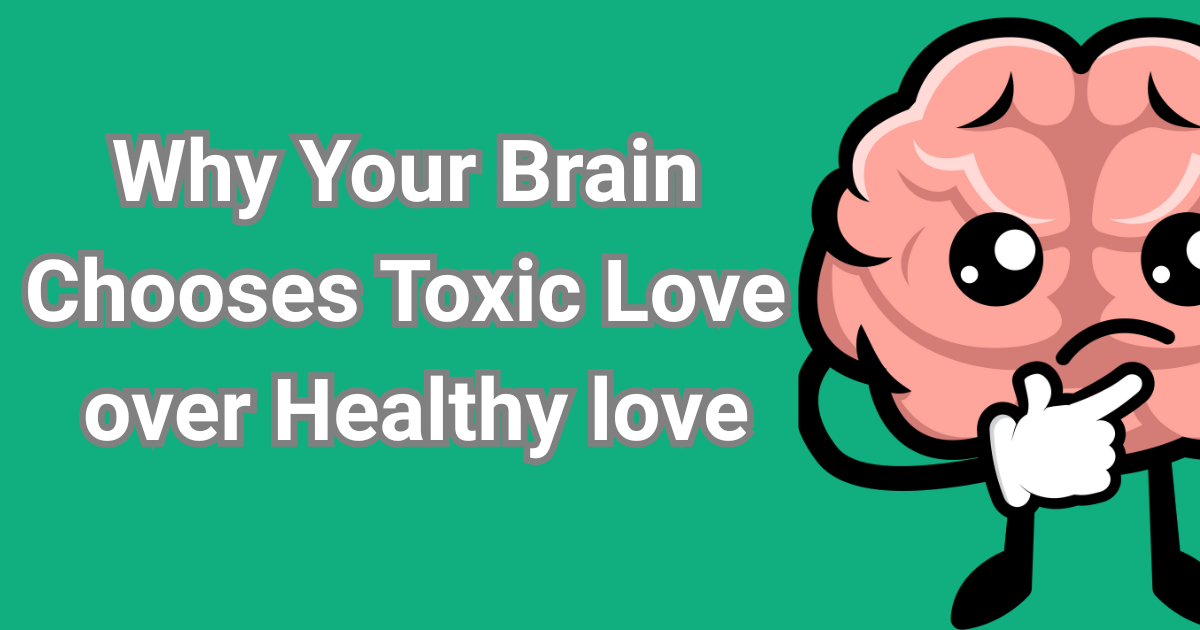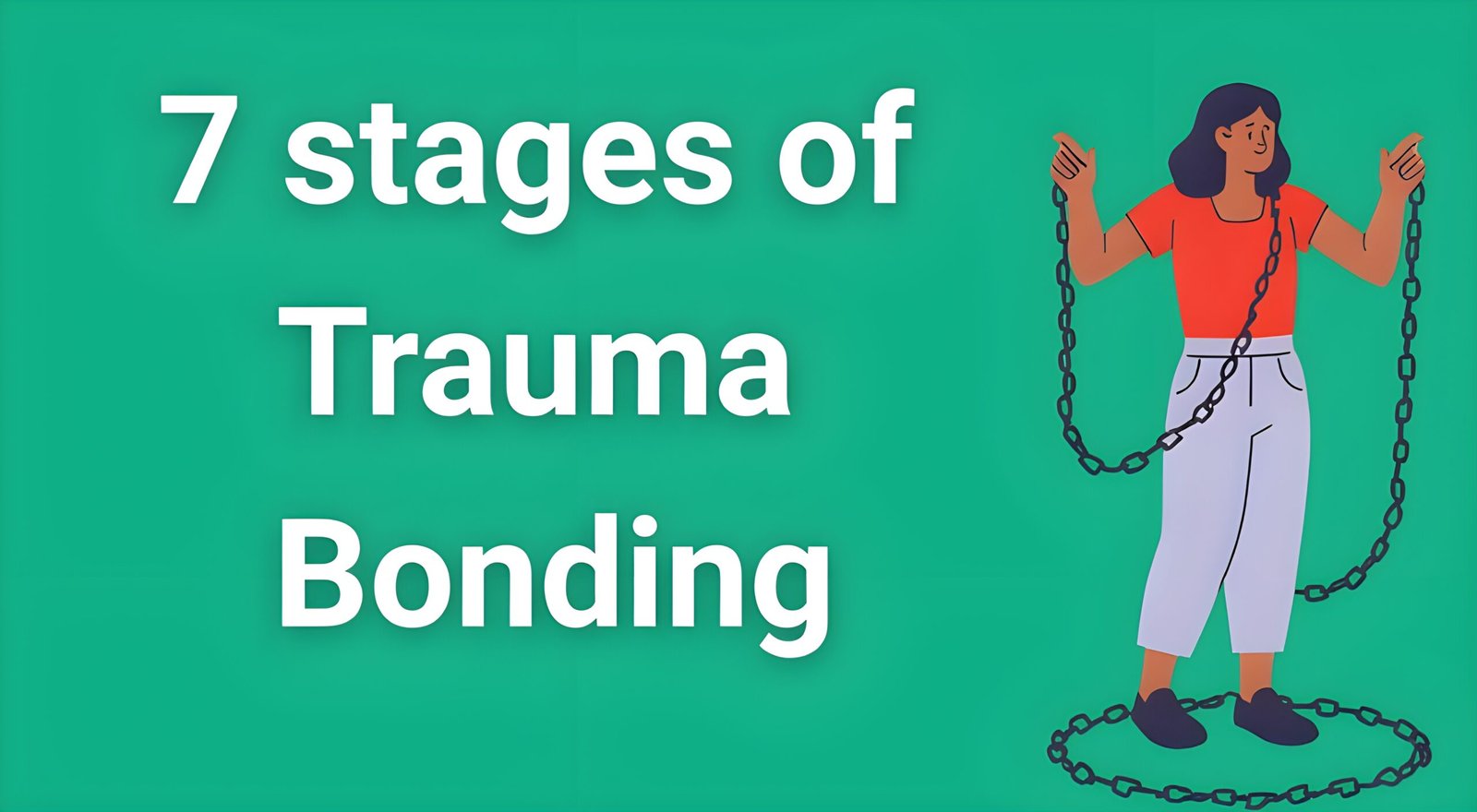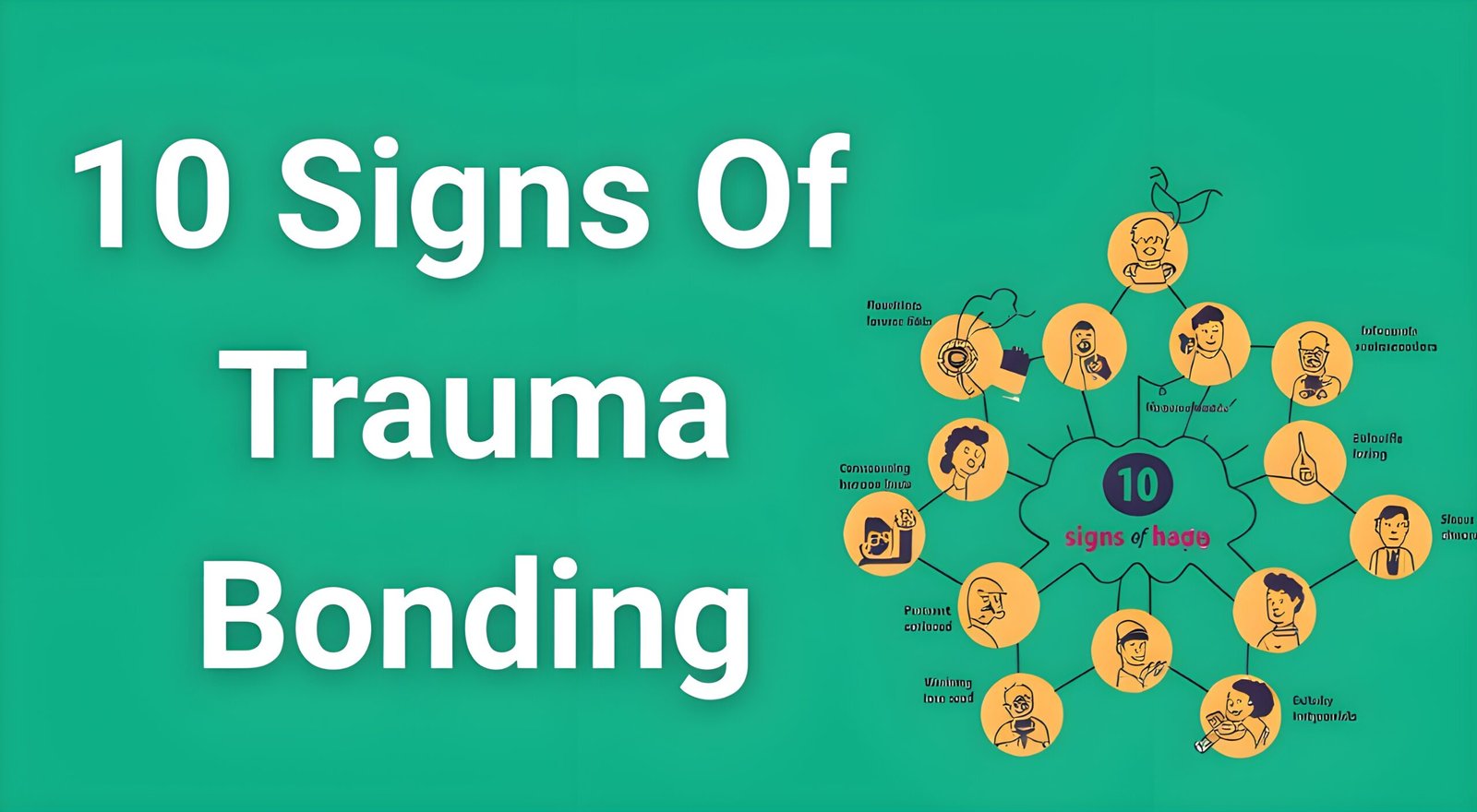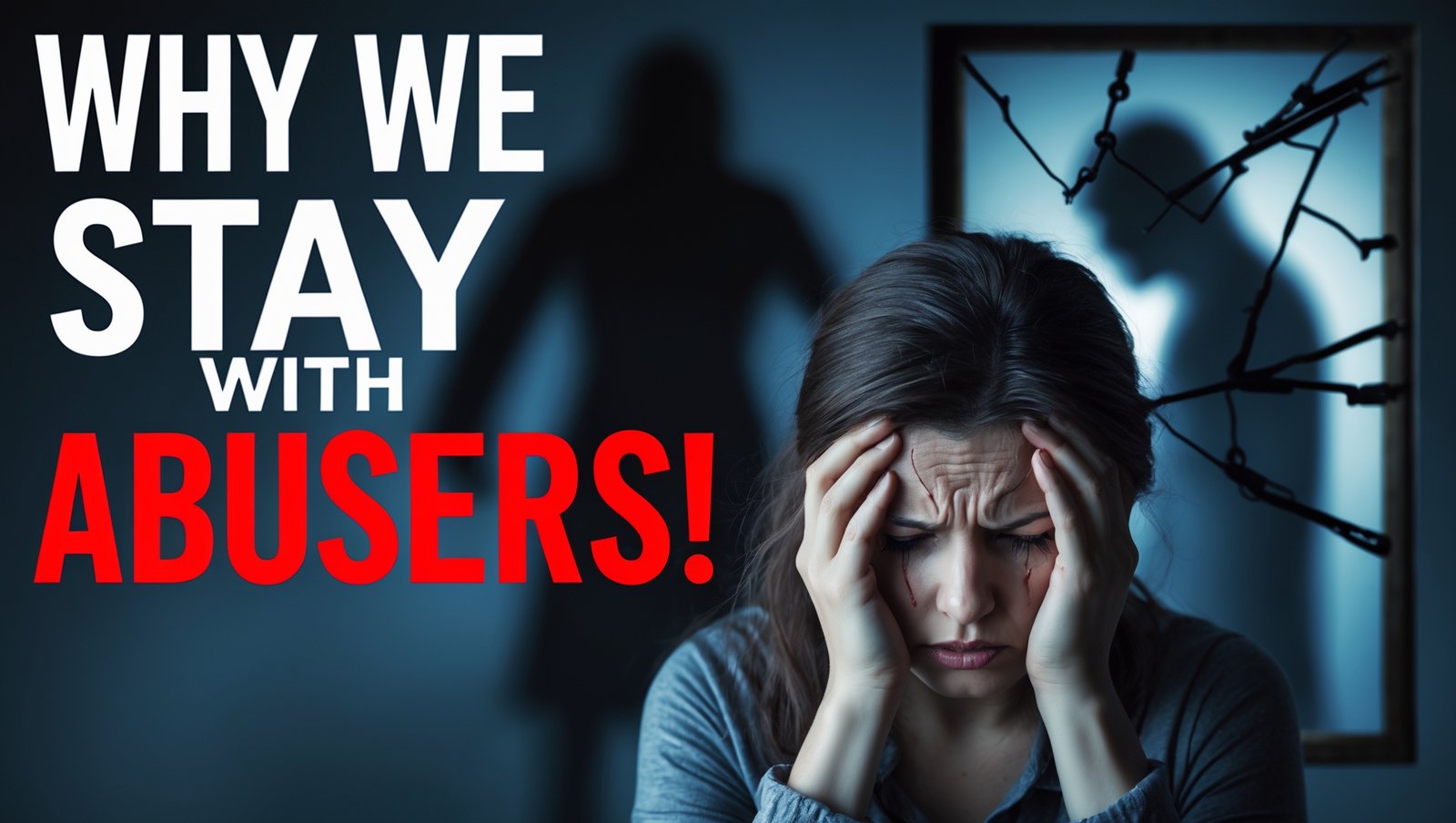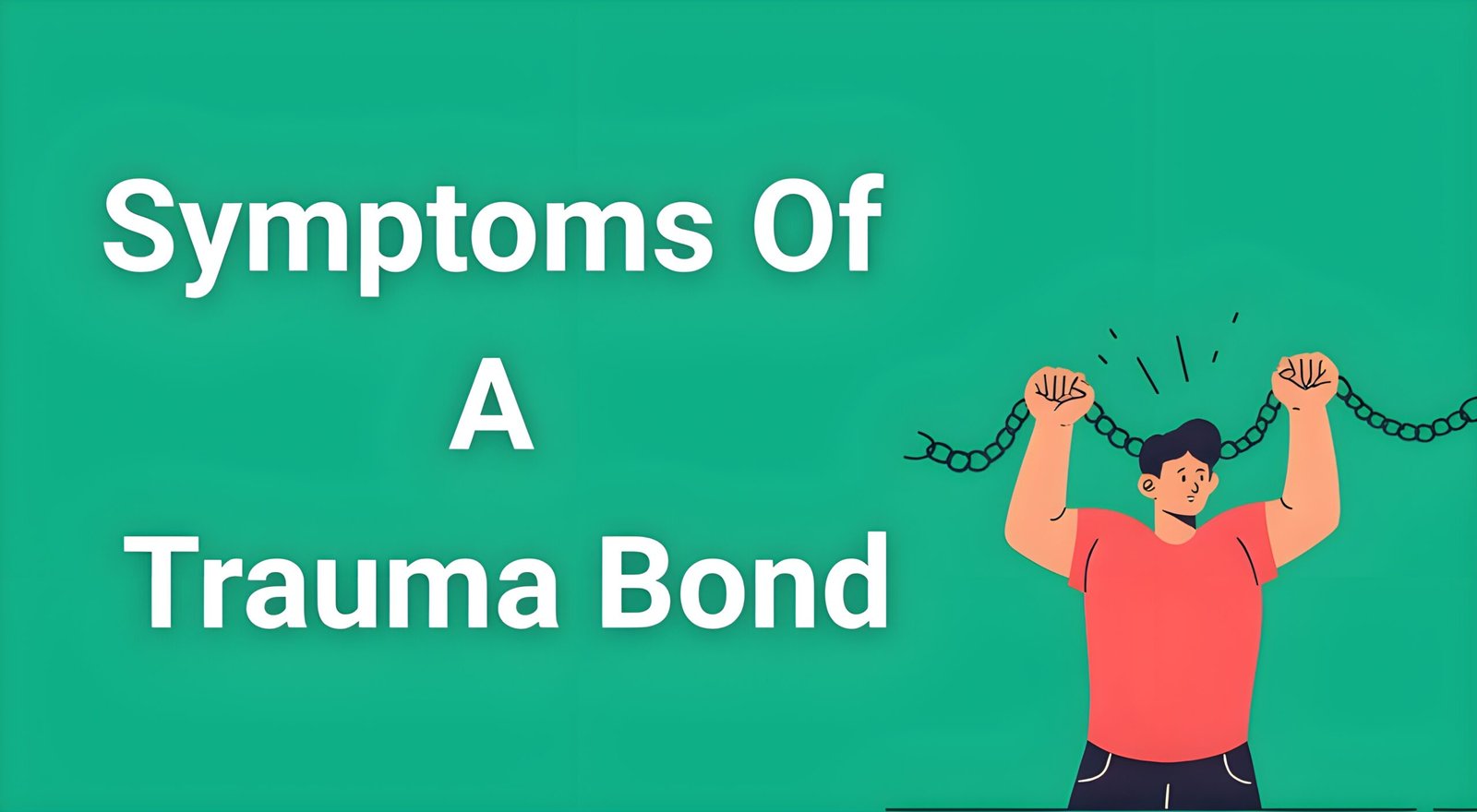Your heart races as you scroll through your phone at 3 AM, throat tight, eyes burning. You’ve done this dance before – promising yourself “this time is the last time,” yet finding yourself back in the same spiral of hope and hurt. Why is it so hard to leave someone toxic when every logical cell in your brain is screaming to run? So why your brain chooses toxic love?
The truth is, your brain might be working against you. That magnetic pull you feel, the one that keeps you coming back despite the red flags? It’s not just emotional weakness – it’s your neurochemistry playing a complex game of survival. When you’re caught in the cycle of a toxic relationship, your brain creates powerful bonds that mirror addiction pathways. The same neural circuits that once protected our ancestors from abandonment now keep you tethered to patterns that hurt you.
This attachment isn’t just about love – it’s about how your brain processes pain, pleasure, and the terrifying prospect of being alone. Each time you try to walk away but can’t, you’re not just fighting feelings – you’re fighting biological circuits wired deep in your survival instincts.
If you’ve ever wondered why you can’t seem to let go, even when you know better, you’re about to understand the fascinating and sometimes heartbreaking science behind why your heart and brain might be playing for different teams.
The Hidden Psychology Why your brain chooses toxic love
You think it’s about love. About hope. About the future you’ve imagined together. But what’s really keeping you frozen isn’t what you expect – it’s a complex web of psychological forces that work beneath your conscious awareness, like invisible strings pulling you back every time you try to leave.
Here’s what’s really happening in your brain when you see those red flags but stay anyway: Your nervous system is caught in a dance between threat and reward, creating a cocktail of chemicals more potent than any addiction. That rush of relief when things are good? It’s not just emotional – it’s your brain flooding with dopamine, teaching you that even temporary peace is worth the chaos.
But it goes deeper than brain chemistry. Each time you stay, you’re not just making a choice – you’re reinforcing neural pathways that convince your brain this pattern is necessary for survival. Like a bird that’s lived so long in a cage it fears the open sky, your mind has learned to mistake familiarity for safety.
This isn’t about weakness. In fact, the same psychological mechanisms keeping you stuck are actually ancient survival tools – ones that once protected us but now keep us bound to situations we’ve outgrown. Your brain, in its misguided wisdom, is trying to protect you through attachment, even when that attachment hurts.
Understanding these hidden psychological forces isn’t just academic – it’s the first step to breaking free. Because once you see the invisible strings, you can begin the delicate work of untangling them, one by one.
In the sections that follow, we’ll explore ten surprising psychological reasons why you can’t walk away despite seeing red flags. These aren’t your typical explanations – they’re the deep, often uncomfortable truths about how your mind processes love, fear, and the complex territory in between.
10 Psychological Reasons Why your brain chooses toxic love
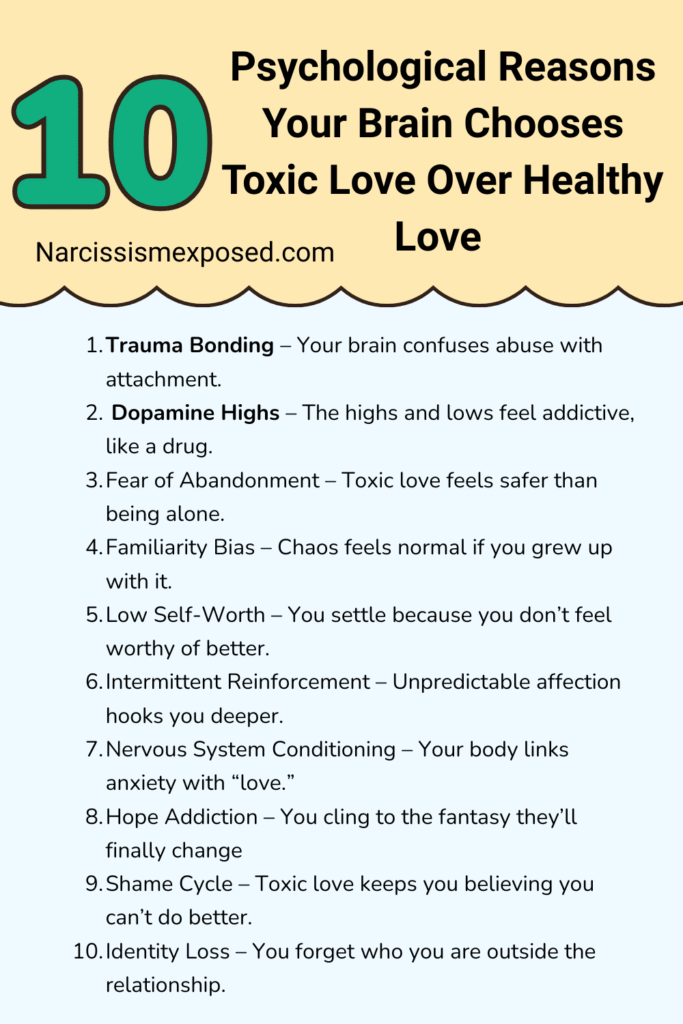
So, now let’s discuss when you choose staying when you have an option of walk away:
1. You’re Trapped in Trauma Bonding
You think it’s love, but your body is caught in a chemical storm that feels like love but operates more like addiction. This is why you can’t walk away, even when every red flag is screaming for your attention – you’re trapped in what psychologists call a trauma bond, one of the most powerful forces in human attachment.
Think of the last time you felt that overwhelming relief when they came back after a fight. That wasn’t just emotional relief – your brain was literally flooding with oxytocin, often called the “love hormone.” But here’s the twisted part: this same hormone gets released more intensely when it follows stress and fear. It’s like your brain’s way of rewarding you for surviving danger, except in this case, the danger is your relationship.
The cycle goes something like this: During the bad moments (the fights, the silent treatments, the disappearing acts), your body produces cortisol – the stress hormone that puts you in survival mode. Your anxiety spikes, your heart races, you feel like you’re dying inside. Then comes the reconciliation, the “good” period. Your brain releases a flood of oxytocin and dopamine, creating a high so powerful it can rival any drug.
This isn’t just an emotional addiction – it’s a biological one. Each time you go through this cycle of tension and relief, the bond strengthens. It’s why you find yourself saying things like “I know it’s toxic, but I’ve never felt this kind of connection with anyone else.” You’re right – you haven’t. Because healthy relationships don’t create the same intense biochemical reactions that trauma bonds do.
Understanding this biological chain reaction explains why logic alone isn’t enough. Your rational mind might see all the red flags, but your body is literally programmed to crave the cycle of chaos and calm. It’s not just about missing them – it’s about going through withdrawal from the most potent cocktail of hormones your brain can produce.
2. You’re Experiencing Cognitive Dissonance
You know that mental gymnastics you do at 2 AM? The ones where you twist yourself into emotional pretzels trying to make sense of why someone who “loves you” keeps hurting you? That’s not you being naive – it’s your brain desperately trying to resolve a psychological tug-of-war called cognitive dissonance.
Picture this: You’re holding two completely opposite thoughts in your mind. “They love me” crashes against “They hurt me.” “This isn’t what I deserve” battles with “But maybe I’m expecting too much.” Your brain, which craves consistency like a desert craves rain, can’t handle these contradicting beliefs existing simultaneously. So it does something fascinating – it starts creating stories.
You find yourself becoming an expert at explanation alchemy, turning red flags into gold: “They’re not really ignoring me, they’re just busy.” “The emotional outbursts mean they’re passionate about us.” “At least they’re honest about their cheating – that shows integrity, right?” Each rationalization is your mind’s desperate attempt to bridge the gap between what you’re experiencing and what you want to believe.
The most painful part? The bigger the disconnect between your reality and your beliefs, the harder your brain works to justify it. It’s like your mind would rather build an entire fantasy world than face the simple, brutal truth that someone you love isn’t loving you right.
This is why you can’t walk away despite seeing red flags – your brain has become a master storyteller, crafting narratives so complex and compelling that stepping out of them feels like abandoning a novel right before the happy ending. The cognitive dissonance isn’t just making you stay; it’s making you invest more in the story you’ve created than the reality you’re living.
3. You’re Under Intermittent Reinforcement
You know that rush you feel when they finally text back after days of silence? That flood of relief when they’re suddenly sweet after being cold? That’s not love – that’s your brain on intermittent reinforcement, and it’s more addictive than consistent affection could ever be.
Think of yourself as a lab rat in a twisted emotional experiment. In one cage, the rat gets a food pellet every time it pushes the lever – that’s consistent love. In another cage, the rat never knows when the food will come – sometimes immediately, sometimes after hours, sometimes not at all. Guess which rat becomes obsessed with pushing the lever? The one that never knows what it’s going to get.
That’s exactly what’s happening in your relationship. When someone consistently shows you love, your brain gets used to it. It’s nice, it’s comfortable, but it doesn’t create that desperate craving. But when someone is unpredictable with their affection? When you never know if today you’ll get the sweet, caring version or the cold, distant one? Your brain goes into overdrive.
You’ve become a detective of their moods, an analyst of their texts, constantly trying to crack the code of what makes the good moments happen. Each time they withdraw, you work harder, convinced that if you just solve the puzzle, you can make the love stay. And when they do show affection? The relief is so intense, so euphoric, it rewires your brain to crave more of this emotional rollercoaster.
This is why you can’t walk away despite the red flags – you’re not just attached to them, you’re addicted to the unpredictability. The very thing that hurts you most is what keeps you coming back for more, like a gambler convinced the next pull of the slot machine will be the jackpot.
4. You’re Affected by The Sunk Cost Fallacy
You keep doing the math in your head: Three years of memories. Two apartments shared. One joint bank account. Countless “I love yous” and “we’ll make it work.” Each time you think about leaving, your brain starts calculating everything you’ve poured into this relationship, like an emotional accountant refusing to accept a loss.
This isn’t just about sentimentality – it’s about your brain playing tricks on you through something psychologists call the sunk cost fallacy. Every time you think “I’ve already put so much into this relationship,” you’re falling deeper into its trap. Like a poker player who keeps betting because they’ve already lost so much, you stay because leaving feels like admitting those years were wasted.
Remember all those times you defended them to your friends? The dreams you’ve built together? The family events where you painted on a smile and pretended everything was fine? Each of these moments feels like a deposit in a bank account you can’t bear to close, even though it’s bleeding you dry.
Your brain whispers dangerous math: “If I leave now, what was the point of enduring all those bad times?” “We’ve been through so much – surely that means something?” “Just one more try, and all this investment will finally pay off.” But here’s the brutal truth your heart doesn’t want to hear: Time invested doesn’t guarantee future returns in relationships.
This is why you can’t walk away despite the red flags – you’re stuck in an emotional pyramid scheme where you keep investing more, hoping it will somehow make up for everything you’ve already lost. The more time passes, the harder it becomes to admit that sometimes the bravest thing you can do is close the account on a bad investment.
5. You’re Experiencing Learned Helplessness
Remember the first time you tried to leave? You packed your bags, made grand declarations, maybe even made it a few days. Then the second time. The third. Each attempt followed by an inevitable return, until eventually, you stopped trying altogether. This isn’t just fatigue – it’s learned helplessness, and it’s quietly convincing you that escape is impossible.
Think about a wild elephant tied to a tiny stake. It could easily break free, but it doesn’t even try. Why? Because as a baby, it learned that it couldn’t break free, and that belief became its prison. You’re that elephant now. Each failed attempt to leave has reinforced a devastating belief: that no matter what you do, you’ll end up back here anyway.
Your brain has become an expert at predicting defeat: “What’s the point of leaving? I’ll just come back.” “I’ve tried before, and it never works.” “Maybe this is just as good as it gets for me.” These thoughts aren’t random – they’re scars from every time you tried to break free and couldn’t. Each return taught your brain that resistance is futile, that change is impossible.
The most insidious part? This feeling of powerlessness spreads like a stain. It’s not just about leaving the relationship anymore – it’s about doubting your ability to make any significant change in your life. The same voice that whispers “you can’t leave” starts saying “you can’t do better” and “this is what you deserve.”
This is why you can’t walk away despite the red flags – your brain has learned to view hopelessness as a form of protection. After all, if you don’t try to leave, you can’t fail at leaving again.
6. You’re Under Confirmation Bias
Picture this: You’re a detective, but instead of searching for the truth, you’re desperately hunting for clues that support what you want to believe. That random sweet text becomes evidence of change. That single good day outweighs a month of pain. Welcome to confirmation bias – your brain’s way of cherry-picking reality to match your hopes.
You’re not just optimistic – you’re running a sophisticated propaganda campaign in your own mind. Remember that one time they remembered your birthday? Filed under “proof they care.” The three birthdays they forgot? Conveniently archived in the folder labeled “things we don’t think about.” Your brain has become an expert editor, cutting and pasting reality to create the story you want to see.
It’s like having a social media feed of your relationship, but you’re aggressively filtering out the negative posts. A single heart emoji becomes viral content, while the screenshots of cruel messages get buried in your mental spam folder. “See?” your brain whispers, “they do love me. Remember that nice thing they did last week?” Meanwhile, you’re scrolling past a year’s worth of evidence suggesting otherwise.
The wildest part? The more red flags appear, the harder your brain works to find the good stuff. It’s like having a rigged search engine – type in “why should I stay?” and suddenly you’re flooded with every semi-decent moment you’ve ever shared. Type in “why should I leave?” and mysteriously, no results found.
This is why you can’t walk away despite red flags – you’ve become so good at finding what you want to see that you can spot a glimmer of hope in an ocean of pain.
7. You’re Stuck in Pattern Recognition
Your toxic relationship feels like a well-worn pair of shoes – uncomfortable, maybe even painful, but at least you know exactly where the blisters will form. This isn’t just about being stuck; it’s about your brain’s desperate love affair with the predictable, even when the predictable hurts.
Think about it: You know exactly how this story goes. The fighting, the making up, the walking on eggshells – it’s a dance you’ve memorized down to the last step. Sure, it’s dysfunctional, but it’s your dysfunction. You’ve learned all the rules of this broken game, mastered every trigger, mapped every emotional landmine. In a twisted way, there’s comfort in knowing what kind of pain to expect.
Now imagine stepping into a healthy relationship. Terrifying, isn’t it? It’s like being handed a manual in a language you don’t speak. No drama to anticipate. No chaos to navigate. No familiar patterns to fall back on. Your brain, ever the creature of habit, looks at this unknown territory and sends out warning signals: “Better the devil you know than the angel you don’t.”
The most painful irony? Your past experiences have turned dysfunction into your brain’s default setting. That constant anxiety? It feels like home. The emotional roller coaster? It’s practically your zip code. A calm, stable relationship would feel about as natural as trying to write with your non-dominant hand – technically possible, but deeply uncomfortable.
This is why you can’t walk away despite red flags – your brain has become fluent in the language of chaos, and peace sounds like gibberish.
8. You’re Experiencing Protective Denial
You know that little voice in your head that says “it’s not that bad” right after something that’s definitely that bad? That’s not optimism – that’s your brain’s emergency response system kicking in, protecting you from truths too heavy to carry.
Think of your brain as an overprotective parent, shielding you from emotional overwhelm the same way you’d shield a child’s eyes from a scary movie scene. Each red flag gets filtered through this protective lens: Cheating becomes “a mistake.” Emotional abuse transforms into “they’re just passionate.” Controlling behavior gets repackaged as “they really care about me.” Your mind is working overtime, turning sharp edges into rounded corners just so you can make it through another day.
The scariest part? The bigger the red flag, the stronger the denial. It’s like your brain has a maximum capacity for pain, and anything beyond that gets automatically downgraded from “crisis” to “inconvenience.” That time they humiliated you in front of your friends? “They were just having a bad day.” The money they “borrowed” and never returned? “They’re just going through a rough patch.”
Your denial isn’t weakness – it’s your psychological immune system working overtime. Just like your body creates fever to fight infection, your mind creates denial to fight emotional devastation. The problem is, while this protective mechanism helps you survive the moment, it keeps you stuck in situations your heart knows you need to escape.
This is why you can’t walk away despite red flags – your brain’s self-preservation instinct has turned against you, protecting you from the pain of truth at the cost of keeping you in pain.
9. You’re Under Chemical Conditioning
Ever wonder why you feel almost high after an intense fight and makeup session? Why the drama, as exhausting as it is, feels somehow… exciting? You’re not crazy – you’re experiencing what happens when your brain becomes a chemical junkie, hooked on the highs and lows of toxic love.
Think of your relationship like a twisted theme park. Each emotional rollercoaster sends a surge of chemicals flooding your brain: dopamine, adrenaline, cortisol, oxytocin – a cocktail more potent than any street drug. The fight? That’s your adrenaline spike. The makeup sex? Dopamine rush. The brief period of peace? Your brain drinking in that sweet oxytocin high.
Over time, your brain has learned to associate drama with these intense chemical rewards. A calm, healthy relationship feels about as exciting as decaf coffee to an espresso addict. Your neural pathways have been rewired to crave chaos, treating red flags like neon signs pointing to your next fix.
The most dangerous part? The higher the drama, the bigger the chemical rush. Your brain has become an expert at manufacturing crisis just to feel something. That urge to check their phone, the need to create conflict out of nothing, the almost disappointing relief when things are too quiet – it’s all your brain hunting for its next neurochemical hit.
This is why you can’t walk away despite red flags – you’re not just emotionally invested, you’re biochemically addicted to the very chaos that’s destroying you.
10. You’re Experiencing Identity Fusion
Have you noticed how “I” became “we” somewhere along the way? Not just in your speech, but in your very sense of self? You’ve lost where they end and you begin – it’s called identity fusion, and it’s making leaving feel like amputating part of yourself.
Think about it: When was the last time you made a decision without considering them first? Not just big choices, but small ones too. What to wear. What to eat. Which friends to keep. Their opinions, their preferences, their moods have become so tangled with yours that trying to separate them feels like trying to unscramble an egg.
Your identity has become like a shared Google Doc – every thought, every feeling, every decision constantly synced with their presence. The scariest question isn’t “How will I leave?” but “Who will I be if I do?” You’ve forgotten the password to your own self, locked out of memories of who you were before them.
The fusion runs so deep that their pain feels like your pain, their problems become your emergencies. When they’re upset, your world stops spinning. When they’re happy, it’s like the sun finally came out. It’s not empathy anymore – it’s emotional codependency so complete that setting boundaries feels like betrayal.
This is why you can’t walk away despite red flags – leaving doesn’t just feel like ending a relationship, it feels like erasing half of your identity.
Understanding Your Brain’s Role
Your brain isn’t permanently wired for toxic love – it’s plastic, meaning it can change and heal. That same neuroplasticity that got you stuck can set you free. You’ve essentially trained your brain to associate pain with love, but here’s the hopeful part: you can retrain it to recognize and crave healthy patterns.
Think of your current neural pathways like deep tracks in snow – they’re the easiest to follow because they’re well-worn. Creating new paths takes deliberate effort, but each step forward carves a new possibility. Your trauma bonds, while powerful, aren’t your destiny; they’re just really strong habits your brain has learned.
Taking Action: Your Roadmap to Freedom
1. Disrupting the Chemical Cycle
- Create physical distance when possible (this starts breaking the neurochemical dependency)
- Practice emotional regulation techniques to manage withdrawal symptoms
- Use exercise to naturally boost your dopamine and reduce dependency on relationship highs
2. Rewiring Your Neural Pathways
- Start mindfulness practices to strengthen your decision-making cortex
- Engage in new activities that create positive neural associations
- Build relationships with stable people to expose your brain to healthy attachment patterns
3. Professional Support Strategies
- Seek trauma-informed therapy to understand your unique attachment patterns
- Consider EMDR therapy for processing relationship trauma
- Join support groups to normalize your experience and learn from others
4. Practical Daily Steps
- Start journaling to track your emotional patterns and triggers
- Create a sensory kit for managing anxiety (specific scents, textures, sounds)
- Establish routines that reinforce your independent identity
5. Building Your Support System
- Identify safe people who understand toxic relationship dynamics
- Connect with communities who’ve experienced similar situations
- Create an emergency contact list for moments of vulnerability
Why You Can’t Walk Away: Breaking the Spell
You’ve made it this far, and that alone shows something powerful: part of you is ready for truth. Understanding why you can’t walk away despite red flags isn’t just about recognizing patterns – it’s about acknowledging that your brain has been running an intricate program of survival, attachment, and addiction without your conscious permission.
Remember: Your inability to leave isn’t a character flaw. It’s not weakness. It’s not love. What you’re experiencing is a complex interplay of psychological mechanisms – from the dopamine hits of intermittent reinforcement to the protective armor of denial, from the familiar comfort of pattern recognition to the powerful grip of trauma bonding.
Think of this knowledge as your first step toward freedom. Each realization is like turning on a light in a dark room – suddenly, what felt like mysterious forces holding you back become visible, understandable patterns. Your brain’s attachment systems, while powerful, aren’t permanent prisons. They’re more like deeply ingrained habits waiting to be rewritten.
The path forward isn’t about gathering more willpower or finding the “right” moment to leave. It’s about understanding that your brain has been rewired by this relationship, and just like it learned these patterns, it can unlearn them too.
Your story isn’t over. Every person who’s ever broken free started exactly where you are now – seeing their situation clearly, perhaps for the first time. Understanding why you stay is the first step toward choosing something different.
If you want blog post in your mail box subscribe newsletter, or you need any help in your toxic relationships, contact me.

